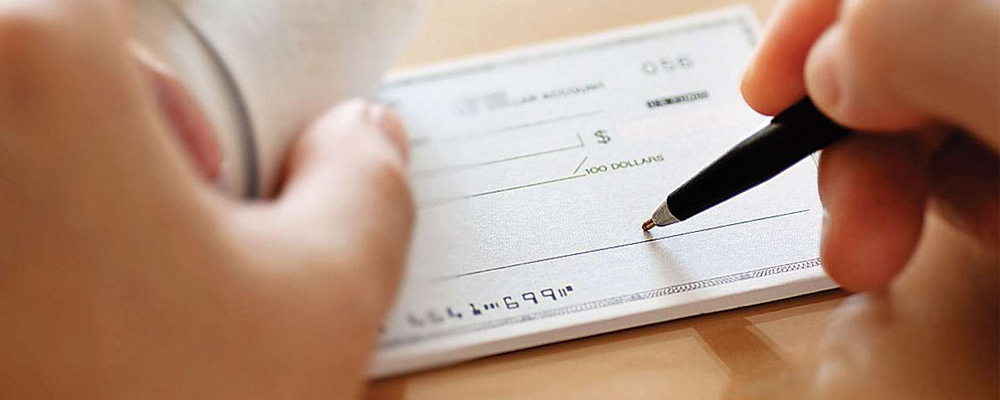A cheque is a formal document from the payer to the payee to pay a specific amount of money. This cheque is deposited in the bank by the payee, also known as the drawee. The funds should ideally be transferred from the payer’s account to the payee via the payer’s bank. However, there are instances where the bank of the payer or the bank of the payee declines to honour this assurance. The causes of this ‘decline’ could be numerous. The cheque is then referred to as a cheque bounce.
Numerous things can cause a cheque to bounce. It can be because the account balance of the person who issued the cheque was insufficient, or it might be because the signature on the cheque did not really match. Sometimes, if the account numbers do not line up then also cheques are not honoured. The damaged and the torn cheque is the reason for the cheque bounce.
A cheque may bounce if the date of issue is incorrect or if it has expired. The issuer may decide to halt the payment on occasion. The cheque is deemed to have been dishonoured in that situation as well. There may be a number of additional reasons for a bank to reject a cheque.
A penalty by the bank in cases of cheque bounce:
Both the defaulter and the payee are incurred with the cheque bounce charges from their respective banks when a cheque bounces. If the bounced cheque was intended to pay back a loan, you would also be responsible for paying late fees in addition to the bank’s penalty.
Some clients use their overdraft accounts, which allows the banks to pay for bounced cheques. On the unpaid balance of an overdraft loan, the client is responsible for paying interest.
Need A Legal Advice
The internet is not a lawyer and neither are you. Talk to a real lawyer about your legal issue

Consequences of cheque bounce:
A cheque that is dishonoured has a penalty for the issuer. Depending on what caused the bounce,
Under the Negotiable Instruments Act of 1881, it is a crime to dishonour a cheque because there is insufficient money in the payer’s account. For writing a cheque against an account that has insufficient funds, the payer could face legal action. The payer may choose to reissue a cheque within three months, or the payee may decide to pursue legal action. If the payer issues a dishonoured cheque, the cheque bounces and punishment of up to two years in prison can be given.
The following are some consequences of a cheque bounce case:
- Bank Penalty: If a cheque bounces because there aren’t enough funds in the account, the signatures don’t match, or there’s some technical problem, the bank will charge a non-sufficient fee. Depending on the type of bank account, a different penalty may be assessed. Additionally, if the returned cheque is for repayment, the bank will assess a penalty fee in addition to late payment fees if the payment is delayed. The case and the amount of the cheque affect the court fees.
- Impact on the CIBIL Score: The banks and other non-banking financial institutions use the three-digit CIBIL score, which ranges from 300 to 900, to assess a borrower’s ability to make timely loan repayments. The cheque bounce may have a negative effect on the accused’s CIBIL score and could make it more difficult for them to get a loan from the bank in the future.
- The Reserve Bank of India (RBI) has published guidelines allowing banks to cease supplying cheque books to defaulters who have been charged with dishonouring cheques at least four times for an amount greater than Rs. 1 crore.
- Both civil and criminal charges may be brought against you as a result of a bounced cheque by the resentful payee. If the accusation of cheating and dishonesty must be proven against the drawer, a lawsuit for these offences may also be brought under Section 420 of the Indian Penal Code, 1860.
So if you are a client who is suffering from a cheque bounce case or wants to know more about the cheque bounce, then you can contact us. Lead India can assist and help you regarding your query.





 Talk to a Lawyer
Talk to a Lawyer